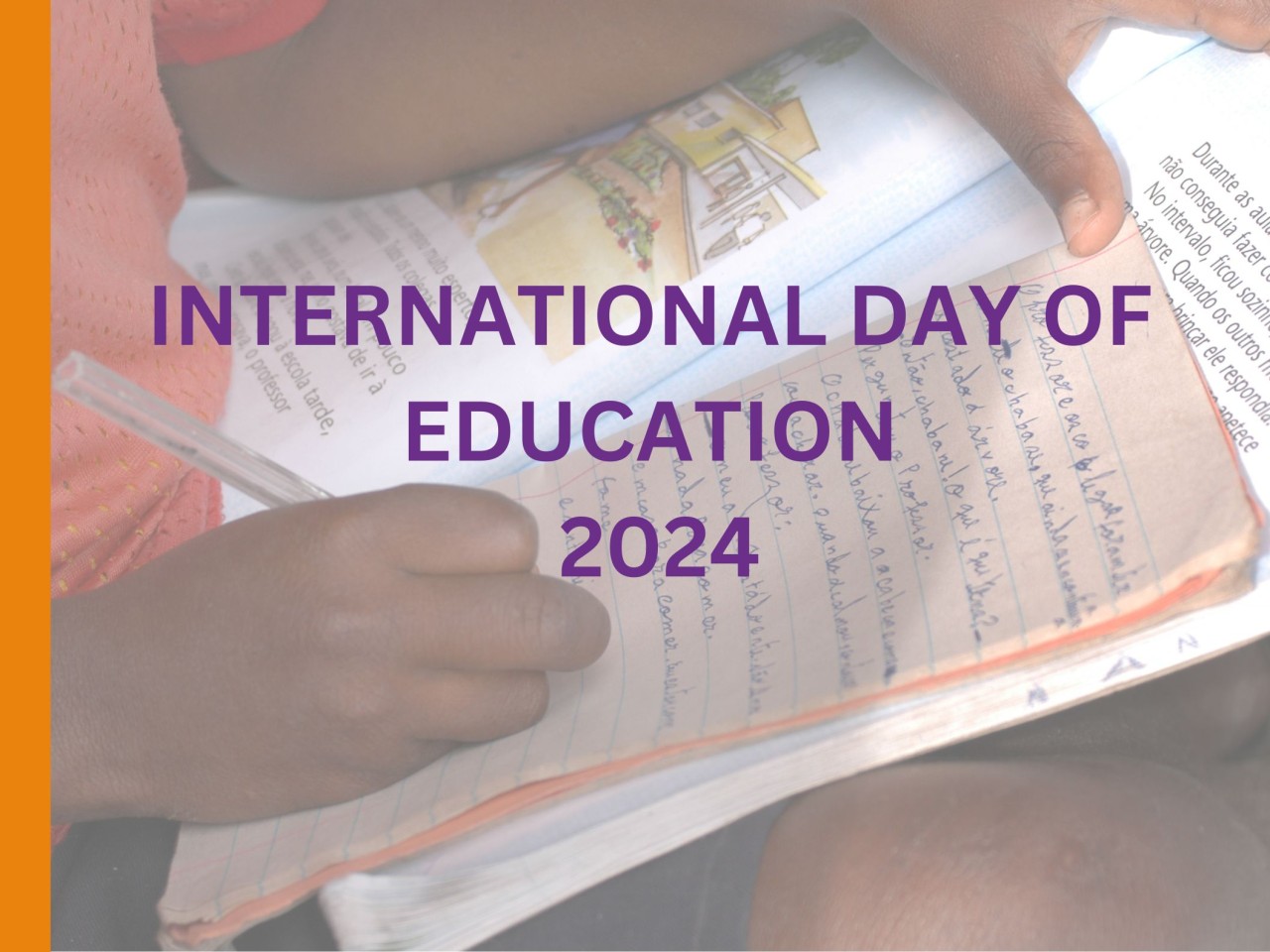GCE Statement on the Occasion of the 2024 International Day of Education
24 January 2024 Publications

“Learning for Lasting Peace”
The Global Campaign for Education joins the celebrations of the International Day of Education 2024, recognizing the historical failure of states and the international community in ensuring all targets of Sustainable Development Goal 4, particularly target 7: “By 2030 ensure all learners acquire knowledge and skills needed to promote sustainable development, including among others through education for sustainable development and sustainable lifestyles, human rights, gender equality, promotion of a culture of peace and non-violence, global citizenship, and appreciation of cultural diversity and of culture’s contribution to sustainable development”.
The escalation of social, political and military conflicts in all regions of the world is significant and it seems that the search for peace is not the main topic of the conflict resolution agenda. Subsequently, children and women’s lives, but not only, continue to be lost dramatically and with impunity, without achieving significant progress, or worse, regression, in the search for lasting peace.
Geopolitical disagreements persist behind many of these conflicts, but in most cases, war is also inflamed by racism, intolerance, and many other violent and subtle forms of discrimination. We are convinced that no lasting peace would be reached without justice. Justice systems must work for peace. Equally important, education systems must promote global citizenship that recognizes and protects the dignity and intrinsic equality of human beings and people's inalienable right to self-determination.
Efforts for world peace should also encompass the need to moderate commercial voracity, which preys on ecosystems and puts urgent limits on weapon manufacturing and trade, thus evidencing double standards of governments that enrich themselves with the sale of weapons while sharing rhetorical speeches about peace.
The Global Campaign for Education considers the building of public awareness and political support crucial for the introduction of peace education and human rights learning into all education levels and modalities, including non-formal education, adult and life-long learning, teacher's education, and capacity building.
The contribution of civil society to the transforming education agenda must continue to have the best auspices from governments, considering that the agreements acquired at the Transforming Education Summit correspond to the binding obligations stated by international human rights law.
The GCE deeply regrets that education is left out of the programme of the upcoming Summit of the Future, since we are convinced that none of its objectives can be achieved if education and lifelong learning are not decisively addressed.
Paradigms do not change by magic, much less can the course of exploitation, war, and inequality that many countries continue to experience and the world witnessing. If the international community does not redouble its efforts to turn education into a learning instrument of human rights, respect for diversity and peace as a way of life.
The scope and approaches proposed for the Summit of the Future should include education transformations, including the teaching role in building lasting peace. Only in this way is there a guarantee of building lasting change because peace is not achieved by exhortation but by example.
GCE encourages all governments and the international community to undertake decisive action towards fully implementing SDG 4.7 and includes civil society and teacher and student organizations for shaping the urgent agenda the world needs.


